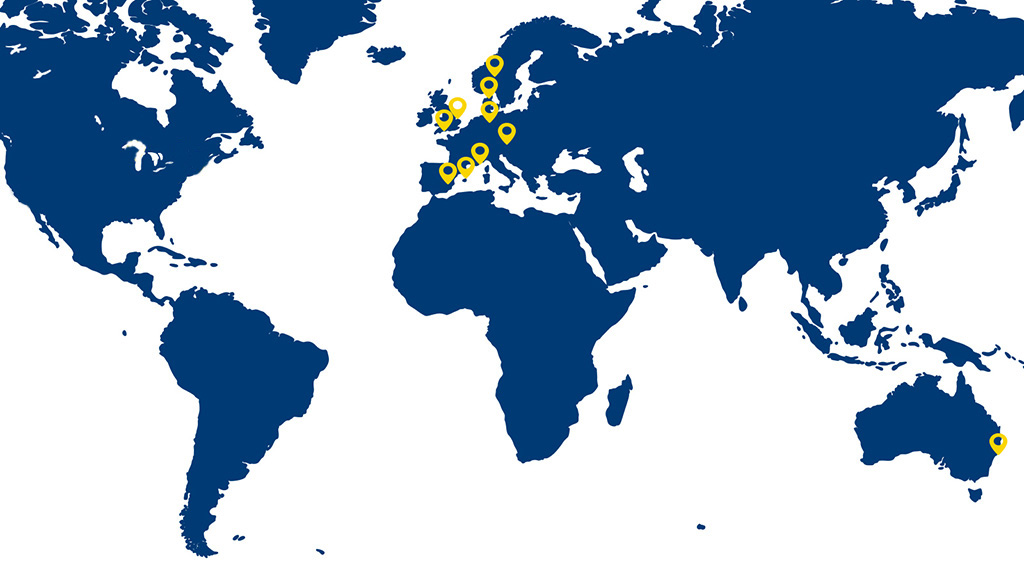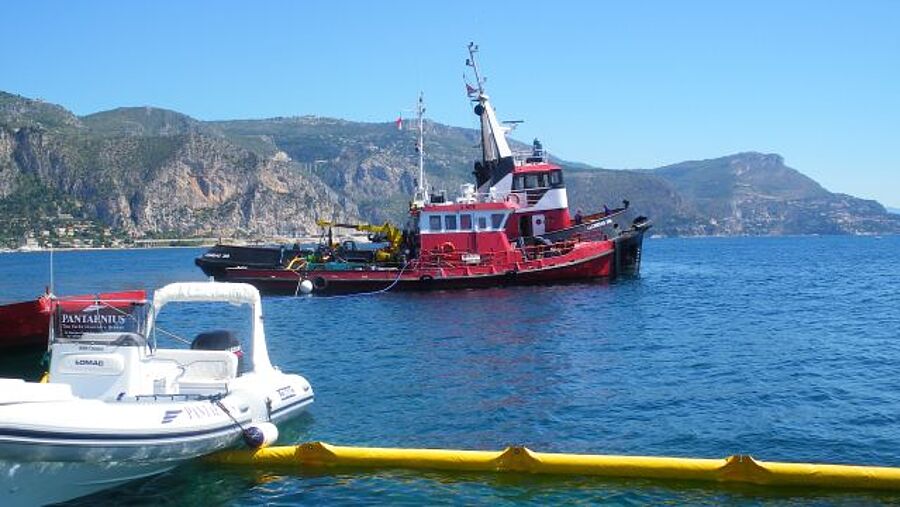
* Pantaenius UK Limited is authorised and regulated by the Financial Conduct Authority (Authorised No.308688)
As your skipper or charter insurances contracts have been concluded in Germany, you will first be redirected to the website of Pantaenius GmbH, Germany. Please follow the link-button to log in to your account.
Login Skipper & ChartererIf at any time you are in an emergency situation and require outside help, you will have other things to think about rather than worrying about salvage costs and other consequences. First the danger must be averted. In the aftermath, the consequences which a salvage operation may have are often very surprising.

In principle, anyone who successfully helps another vessel in distress at sea is entitled to salvage costs. And the salvor will not always be satisfied with a nice bottle from the bar. Ultimately, by paying salvage costs greater damage to or even total loss of the yacht can be avoided, and the risk of polluting the environment or obstructing the shipping lanes can be averted. Salvage fees can amount to up to 100% of the ship's value and – to ensure payment – can lead to the salvaged yacht being impounded. In this event, guarantees must be made by the insurer in order for the ship to be released. Negotiations over the final salvage fee end up before local courts and such cases can drag out for years. Fees for salvage and assistance towing are regulated by an international convention on salvage at sea. According to this convention, numerous criteria influence the way the salvage fee is calculated, including the total value of items saved, the effort and risk involved on the part of the salvor, the weather and regional conditions and the precise salvage measures taken.
Since you, as a layman, will find it difficult to assess these aspects, we strongly advise against negotiating a salvage fee. It is more sensible to contact the insurer as quickly as possible and let them deal with the negotiations. In no event should you discuss specific amounts or the ship's value, nor should you sign any agreement. Our claims staff at Pantaenius are available round the clock (see reverse for emergency hotline) and have wide-ranging experience of how to deal with such situations. If a salvor insists on an immediate agreement, we recommend that you only use the Lloyd's Open Form (LOF). This open form of contract can be used internationally and can even be agreed verbally. The LOF also contains an arbitration agreement on the basis of "no cure – no pay", which offers greater legal security should subsequent disputes arise.
ASSISTANCE BY THE DGzRS
Maritime emergency rescue operations carried out in cases of immediate danger to the vessel and/or the crew are always free of charge. If, however, the German Maritime Search and Rescue Service (DGzRS) is asked to provide technical assistance in a non-hazardous situation, it will request a pro rata reimbursement of its operating costs in the amount of EUR 200 for a period of up to one hour, up to a maximum of EUR 400. Every year, the Maritime Search and Rescue Service carries out more than 2,000 operations. All its work is funded exclusively by voluntary donations, without any contribution from tax revenues. Sailing enthusiasts should not therefore take the work of the many volunteers in the Maritime Search and Rescue Service for granted! They sacrifice a lot of their free time and often place themselves in danger to help others. These services should also be appropriately acknowledged – for example with a regular donation.